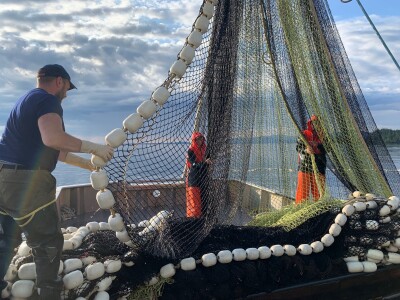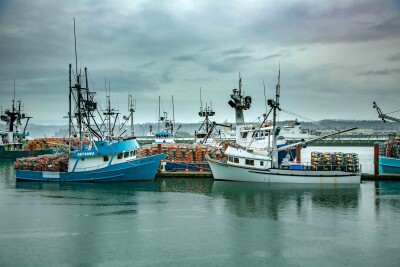Nowhere to hide
On the eve of his bout with the smaller Billy Conn, who had declared that he would "hit and run" his way to the heavyweight title, Joe Louis famously demurred, saying, "He can run, but he can't hide."
As it turns out, the Brown Bomber's prescient observation (Conn was ahead on points when Louis lowered the boom in the 13th round) is a useful admonition beyond the ring.
There was a time when fishermen counted among the attributes of their profession freedom from the numbing banalities that preoccupied landsmen.
Who cared if the stock market went up or down? It was the price of fish that mattered. Popular culture, elections, pennant races and the like made for diverting conversation, but not at the expense of the weather forecast.
Those were the days. Now even the most focused among us understand that there is a big picture out there with what seems like undue influence on what we once knew as the simple and elemental business of catching fish.
Consider the stock market. It would have been bad enough if the market had simply tanked last fall, as it's done from time to time, drying up demand for upscale seafood products and restaurant staples like shrimp.
But it wouldn't have been cataclysmic. We were, after all, accustomed to the idea that fish was the poor man's food (once upon a time, Massachusetts forbade prisons' serving inmates lobsters more than twice a week).
If nothing else, there was plenty of it. Wallace Stewart, who was engineer on the Vandal when I signed on in 1971, recalled a trip of haddock on the eve of the United States' entering World War II. For days no one got off the deck because the captain would haul back as soon the gang carved out space enough to dump the bag without fish spilling overboard, and they ripped fish all night trying to catch up. After they unloaded, the captain came down to the fo'c'sle and announced that the trip, grueling as it was, had been a broker, but he'd give any man who agreed to go again $10.
As it turns out, the stock market's woes reflected a home mortgage implosion and overall financial meltdown. The results are in all of our faces and are likely to remain there. Many fishermen have nest eggs salted away in individual retirement accounts and are directly or indirectly invested in equities. Demand and the seasonal price of fish are relevant, but for those within five or 10 years of retirement — or who once thought they were! — the overriding issue may be years of diligent savings that have been flushed down the toilet in a matter of weeks.
Which is to say nothing of the banking issues that are inextricably linked to the market's crash and the impact these will have on fishermen, suppliers, buyers, processors and distributors who must both borrow money and advance credit to run their businesses.
The stock market is not our only intersection with what has been described as the "flat Earth." Global realities reach daily into our lives and checkbooks. Bluefin tuna fishermen on the East Coast, for example, know firsthand the importance of fishing practices an ocean away, just as Alaska's salmon fishermen feel the influence of the Japanese yen, relative to the U.S. dollar, when they tally up the profits.
And who among us will ever again be unaware of the price of light sweet crude by the barrel? Who will forget that having the price of oil denominated in U.S. dollars can complicate life not only when oil is expensive, as it was last year, but also when the dollar is cheap, as it was last year?
Nowhere is global trade front and center so much as it is in when it comes to aquaculture. Today the United States imports more than four out of every five pounds of fish and seafood consumed in this country, including prodigious amounts of farm-raised shrimp and catfish, among others.
It's easy to reflect on times gone by and conclude that this racket has gone to hell in a handbasket. But it's not especially useful.
What is clear is that things have changed. We are at a new point in the cycle, one few of us envisioned, defined by not by wind speed, wave heights and the seasons of the year, but by stock prices, commodity indices and political trade winds.
It's a lot like a high school trigonometry class: In the beginning, everyone gets it, but as arcane symbols and concepts are introduced, students begin to struggle. Some drop the class, some muddle through, and a handful flourish and marvel that they had it in them.
We can run, but we can't hide.






